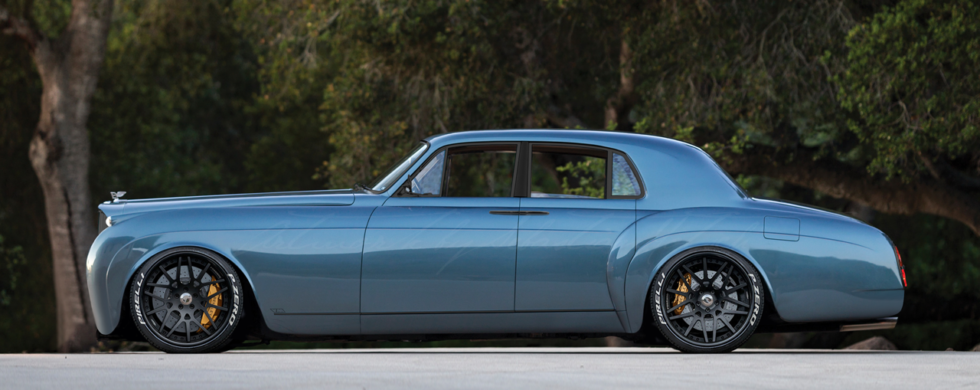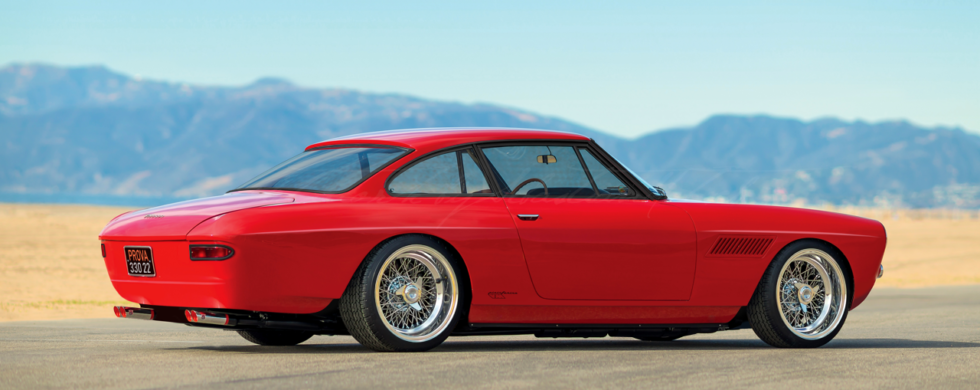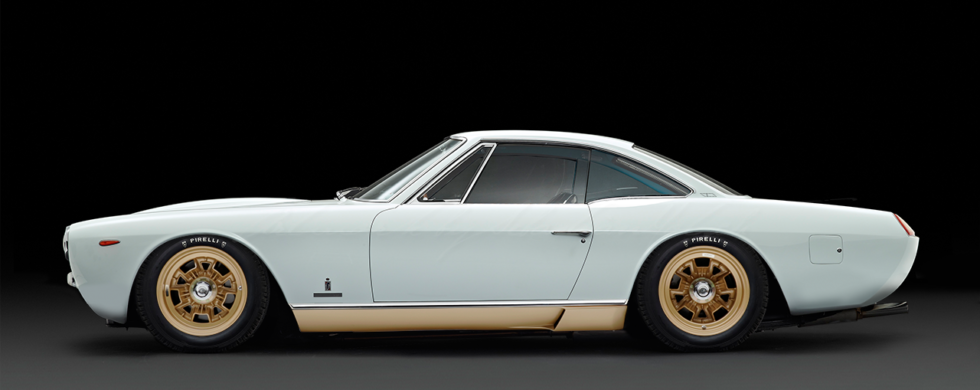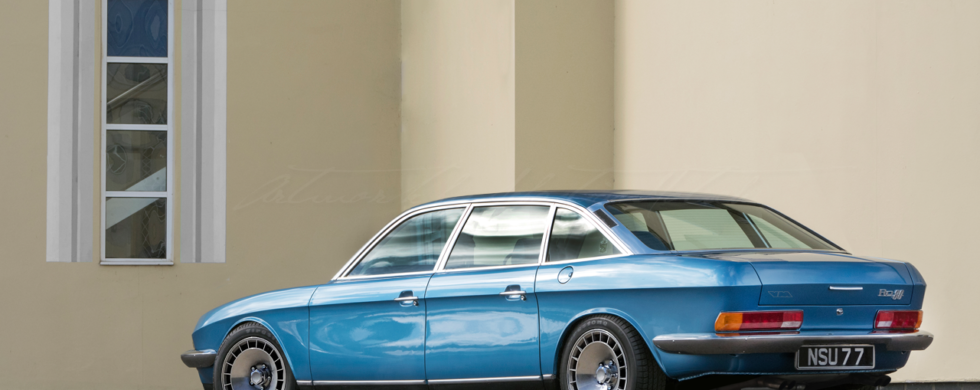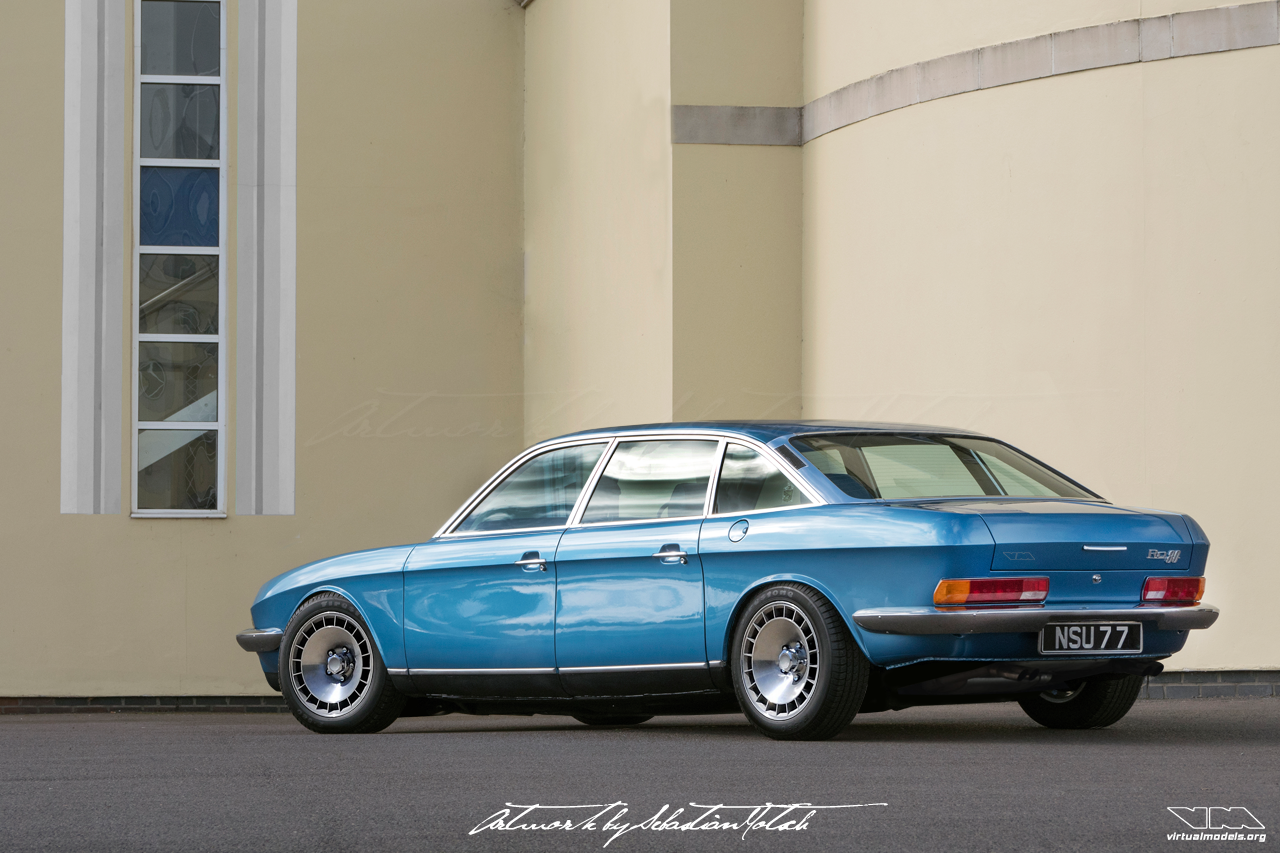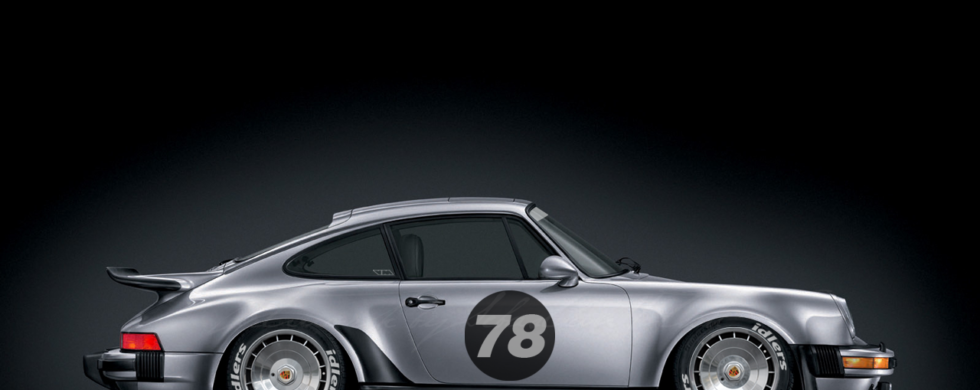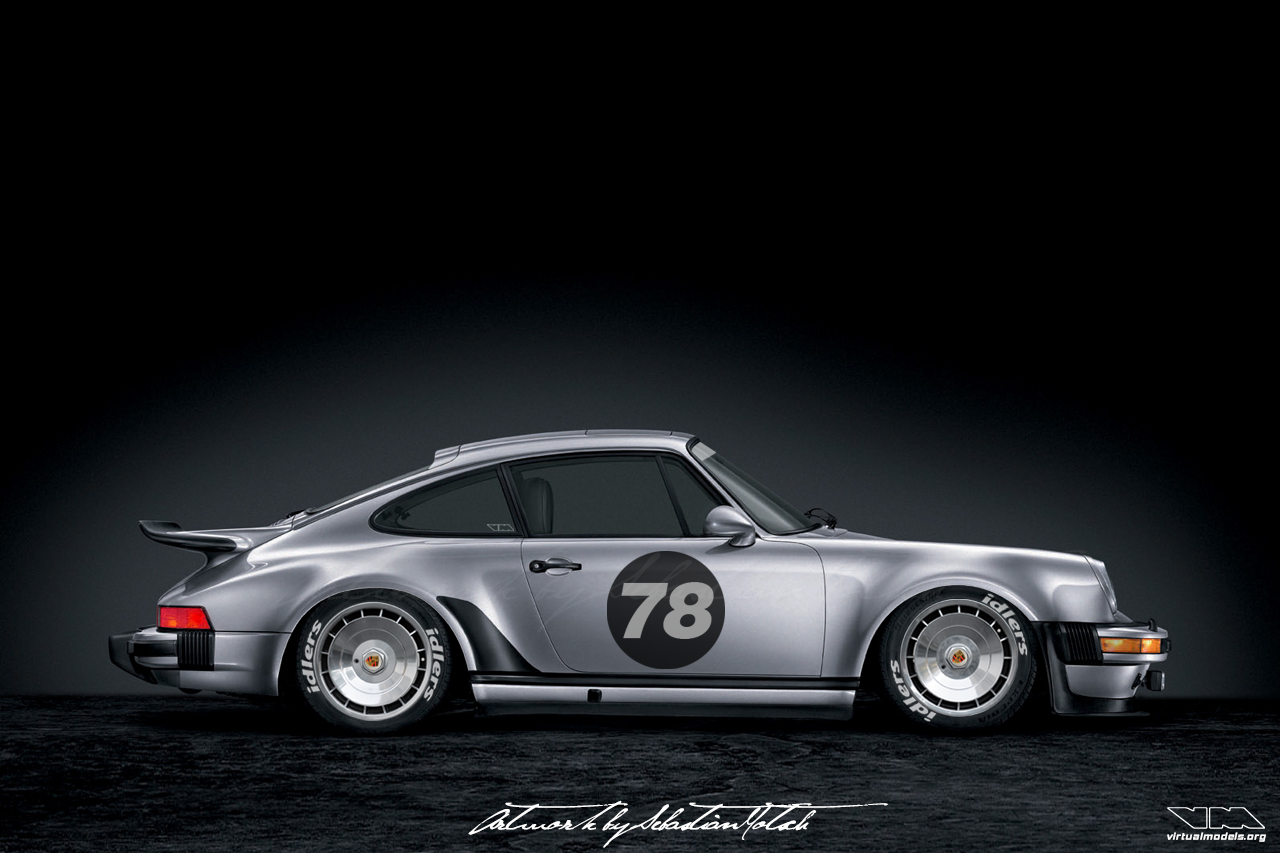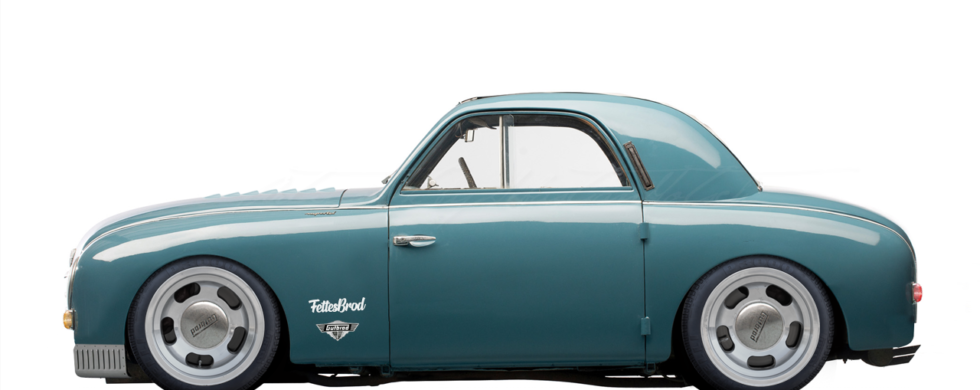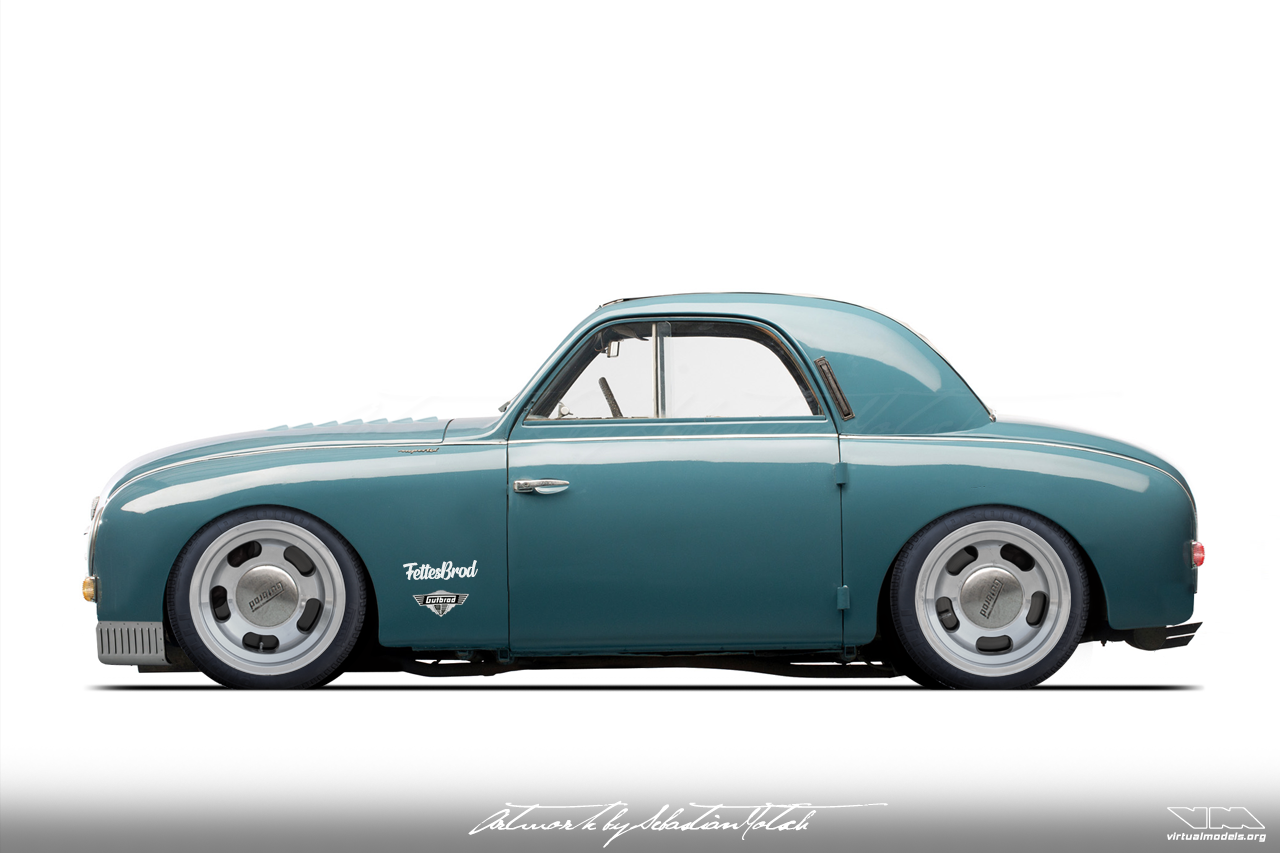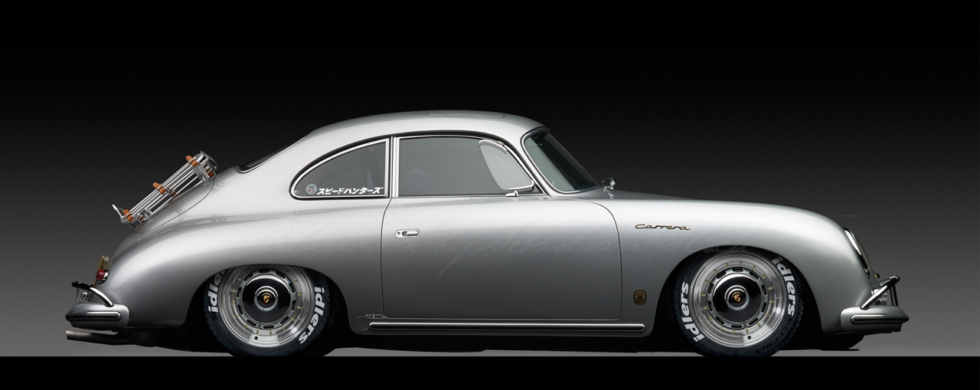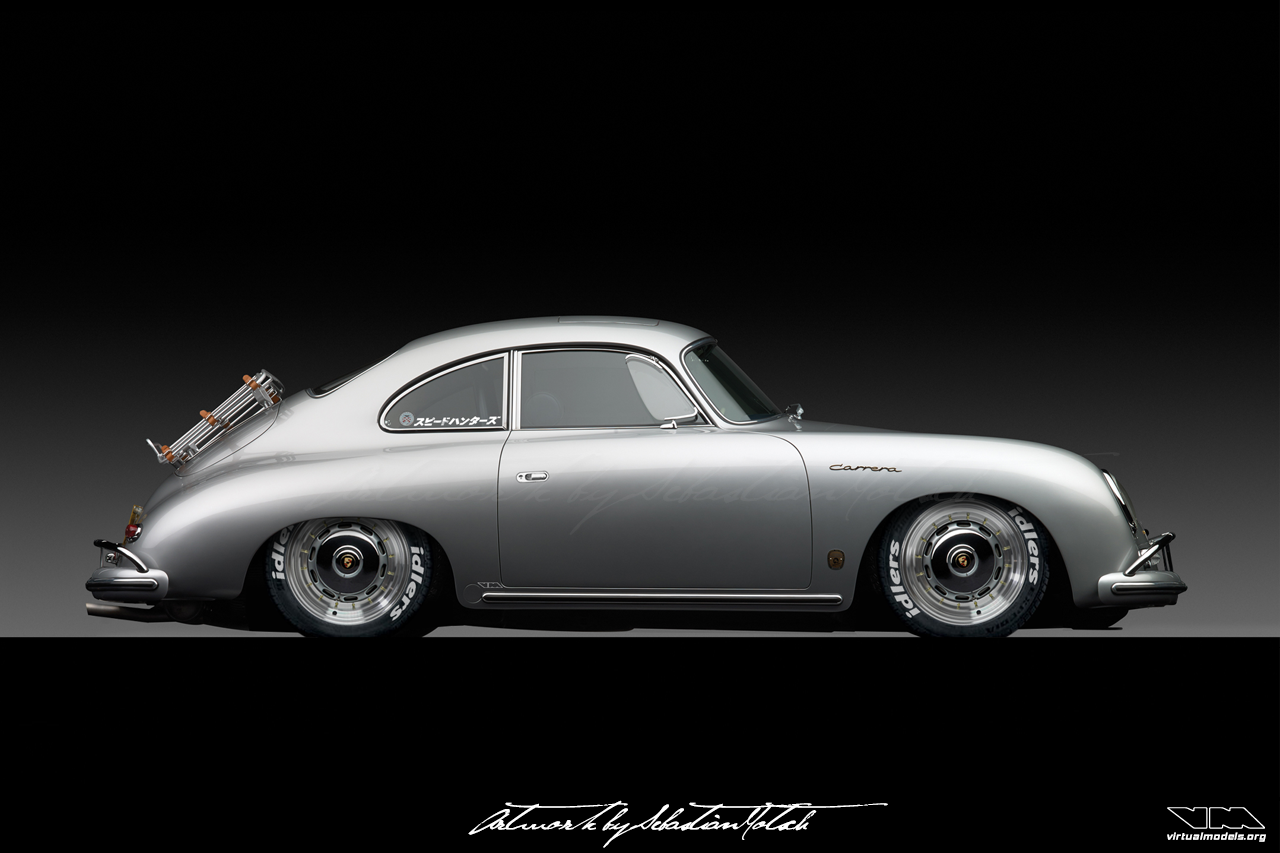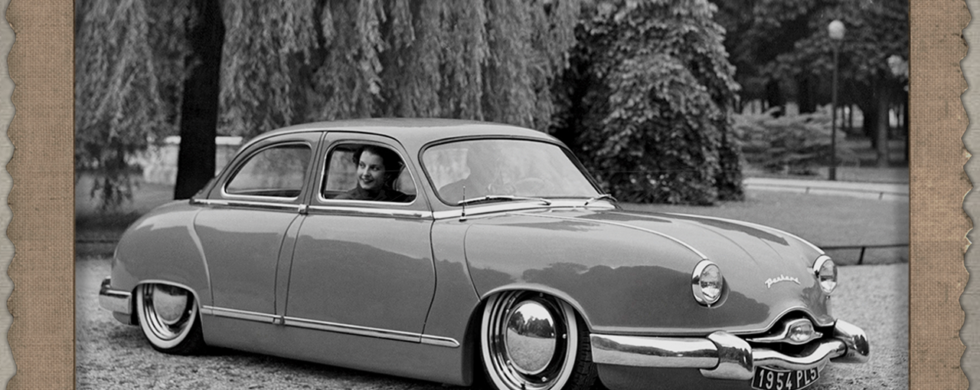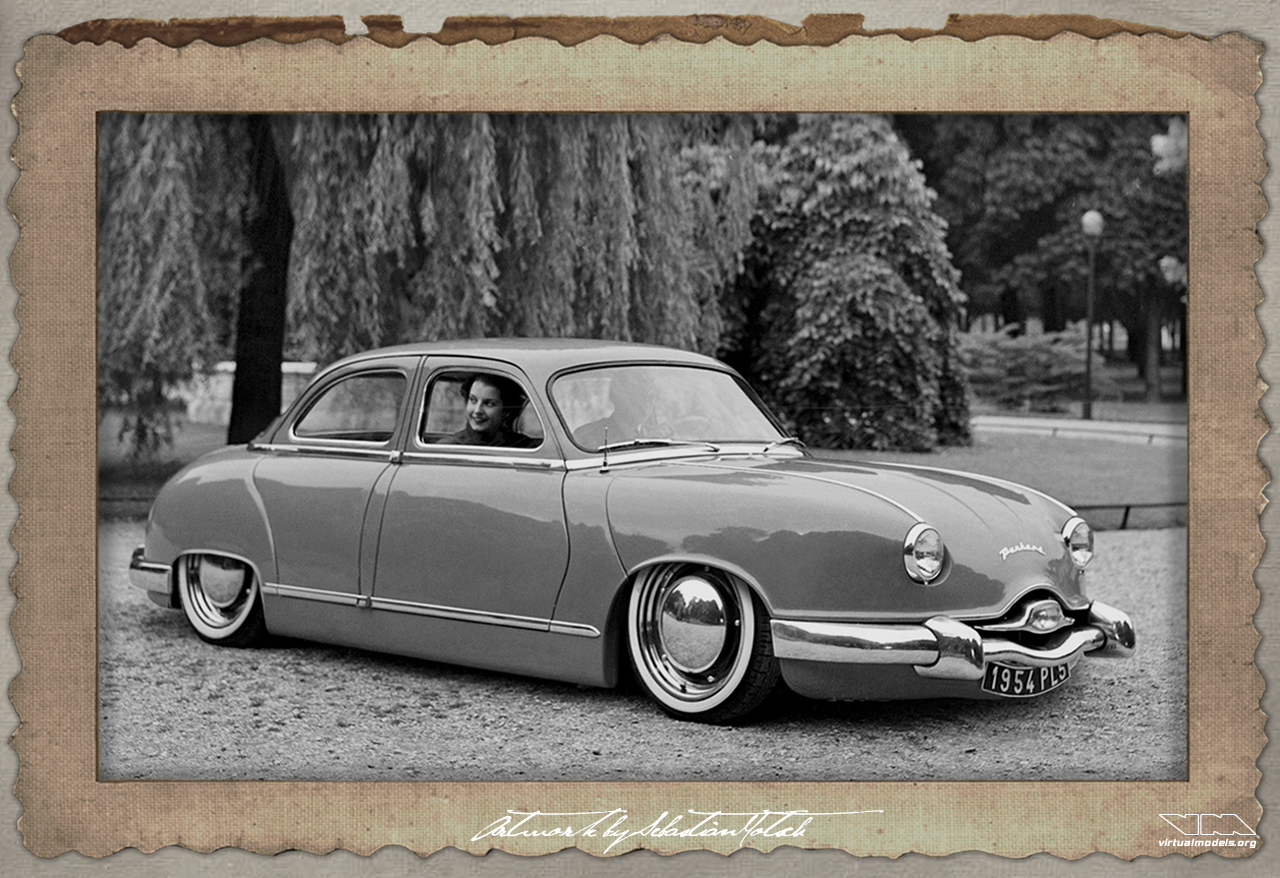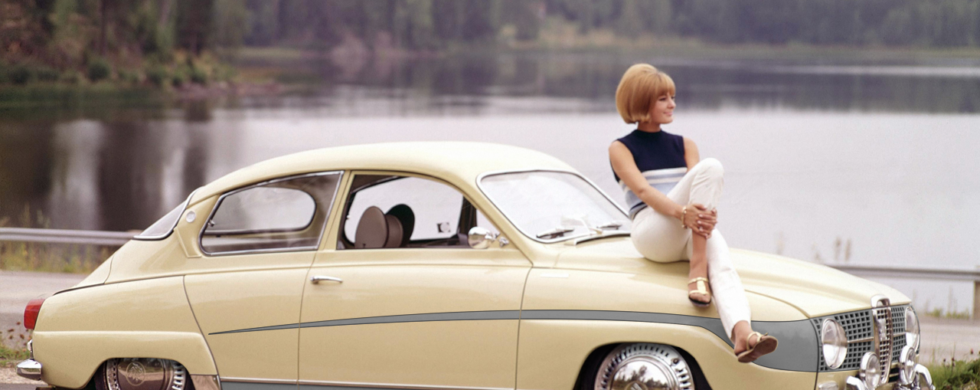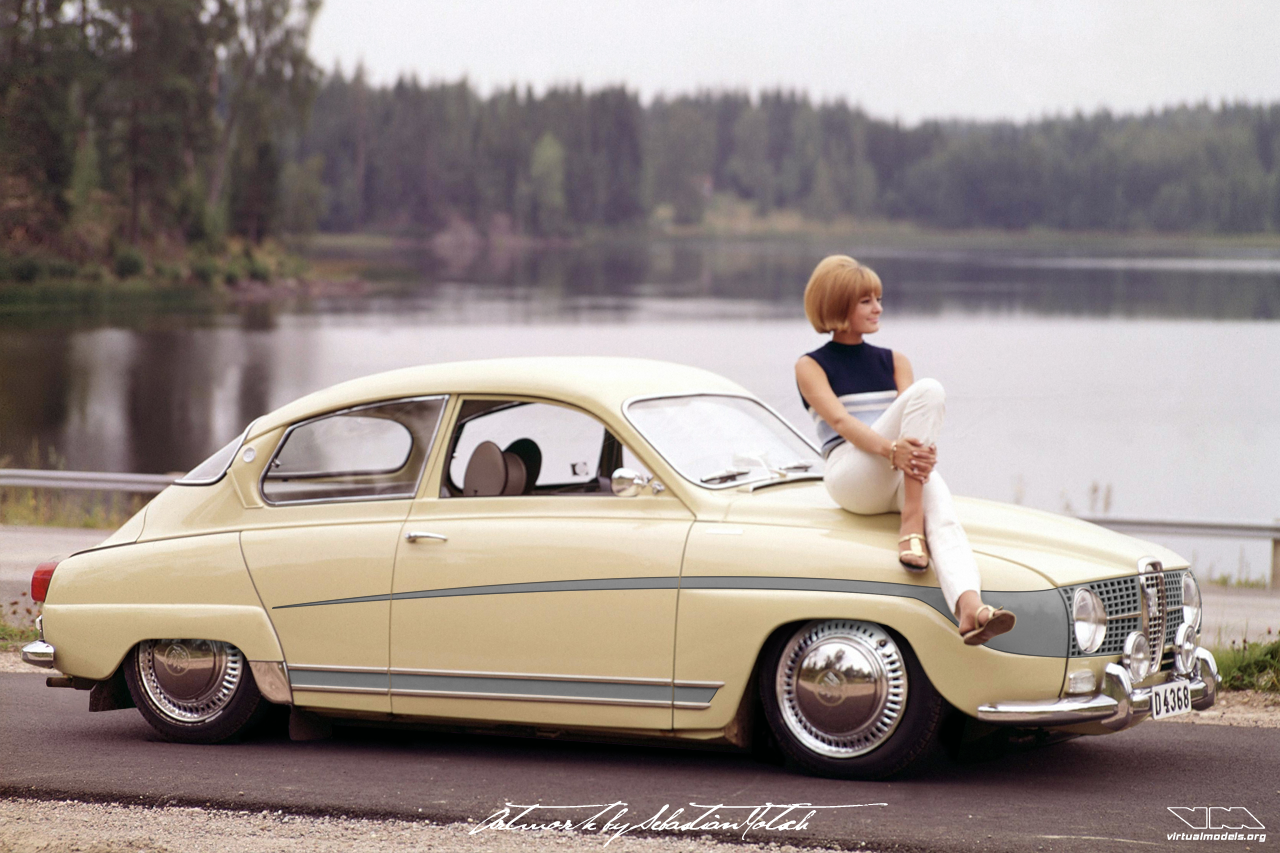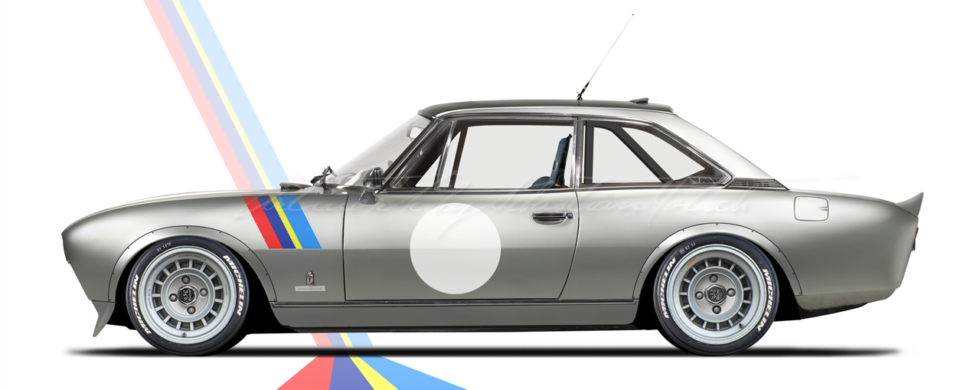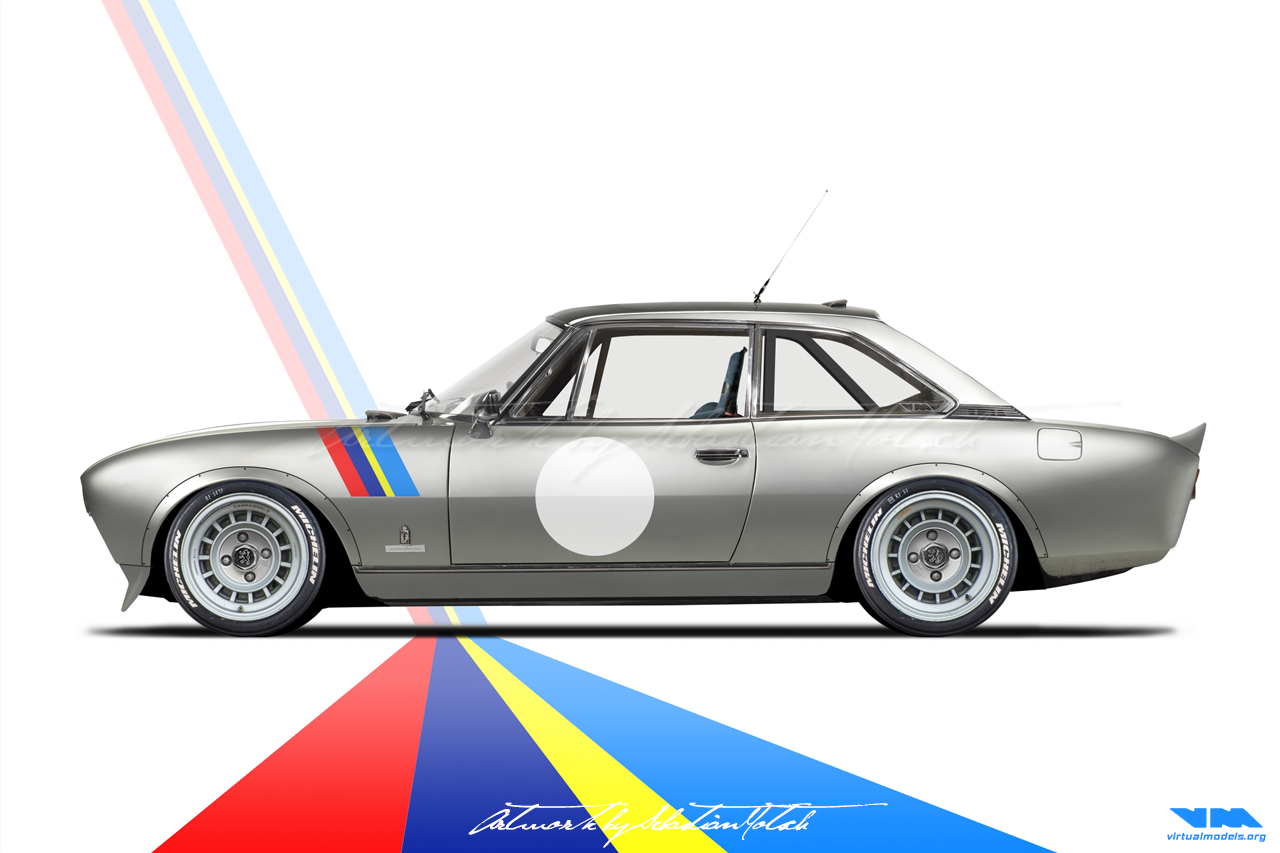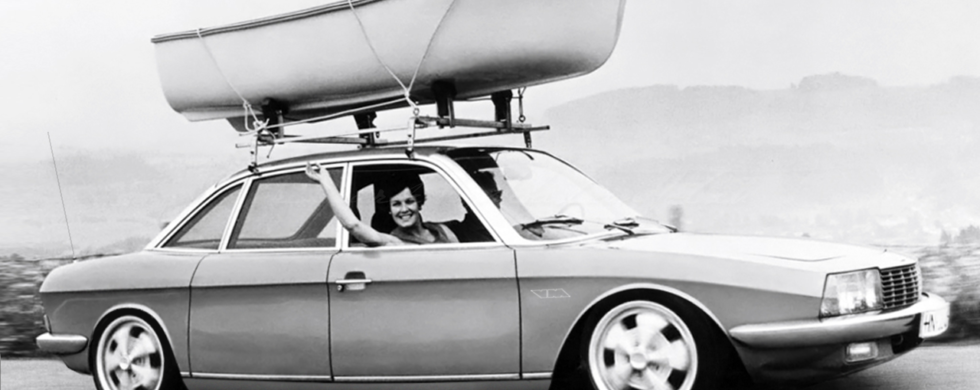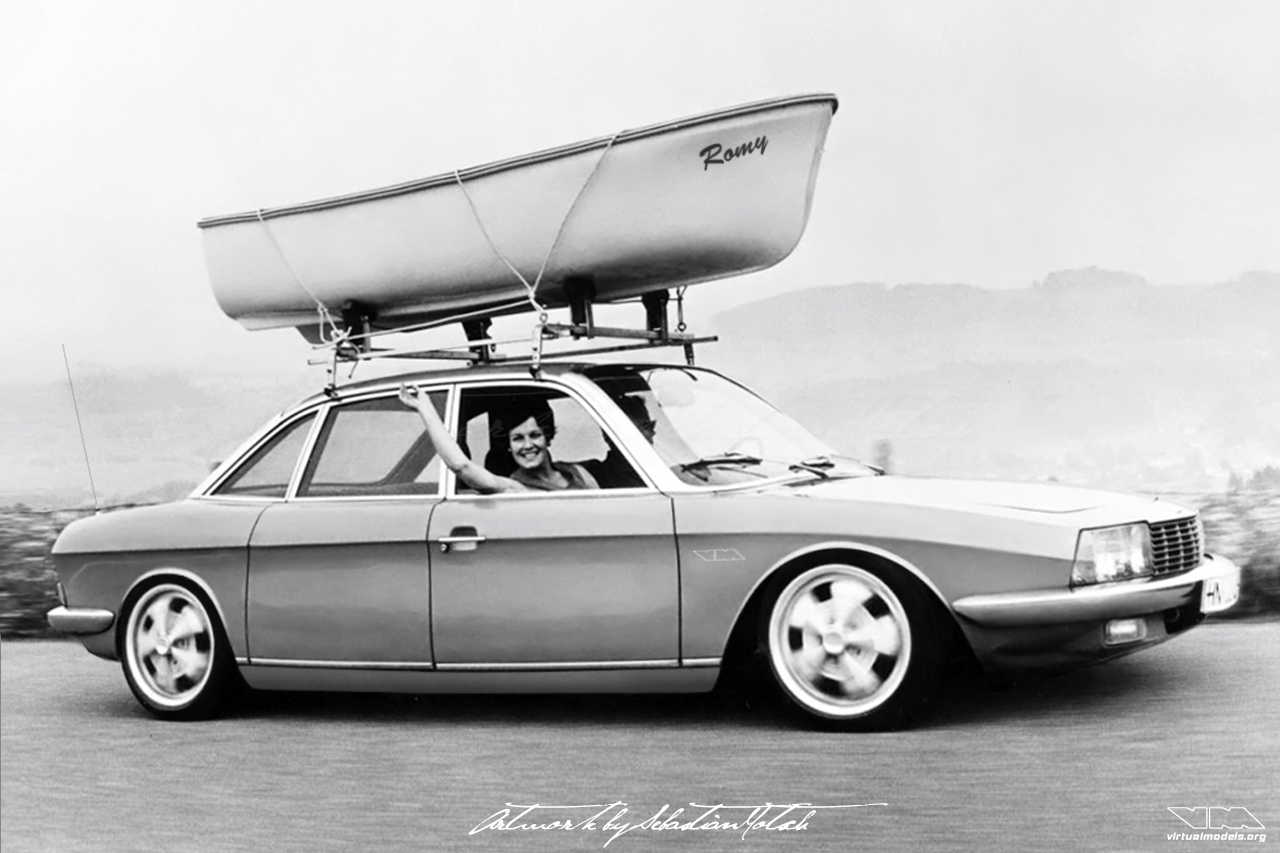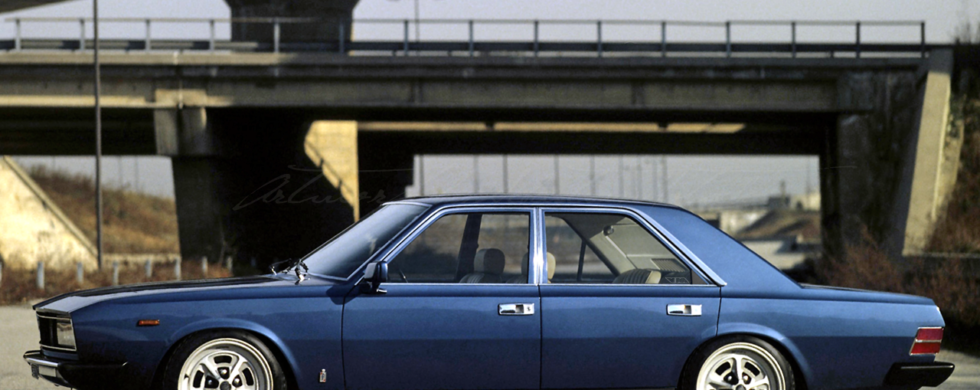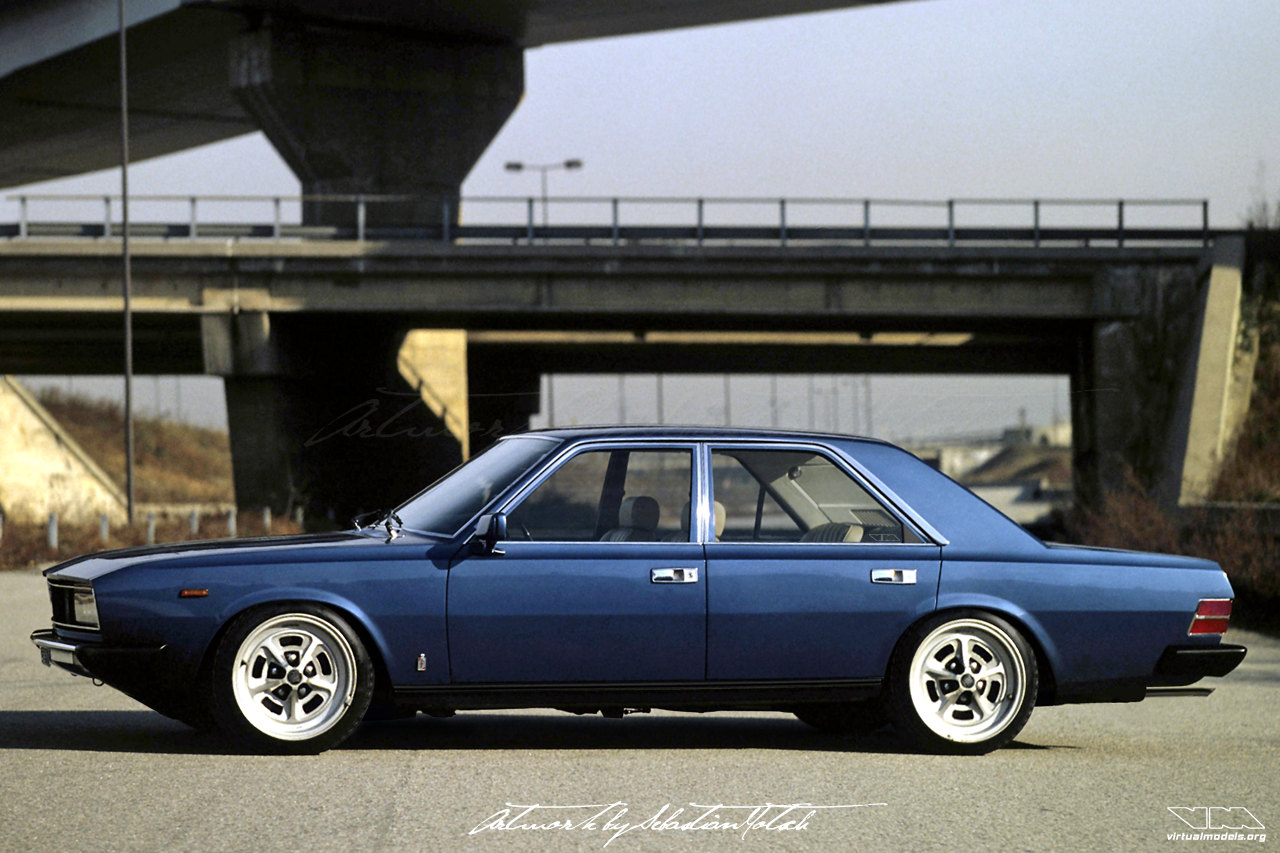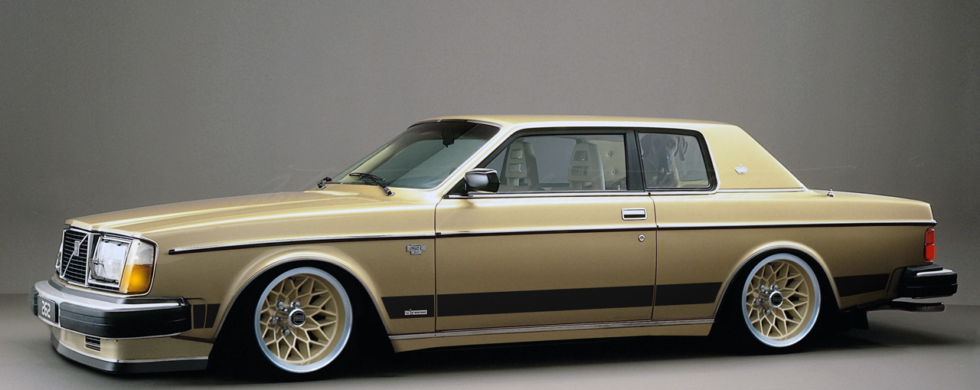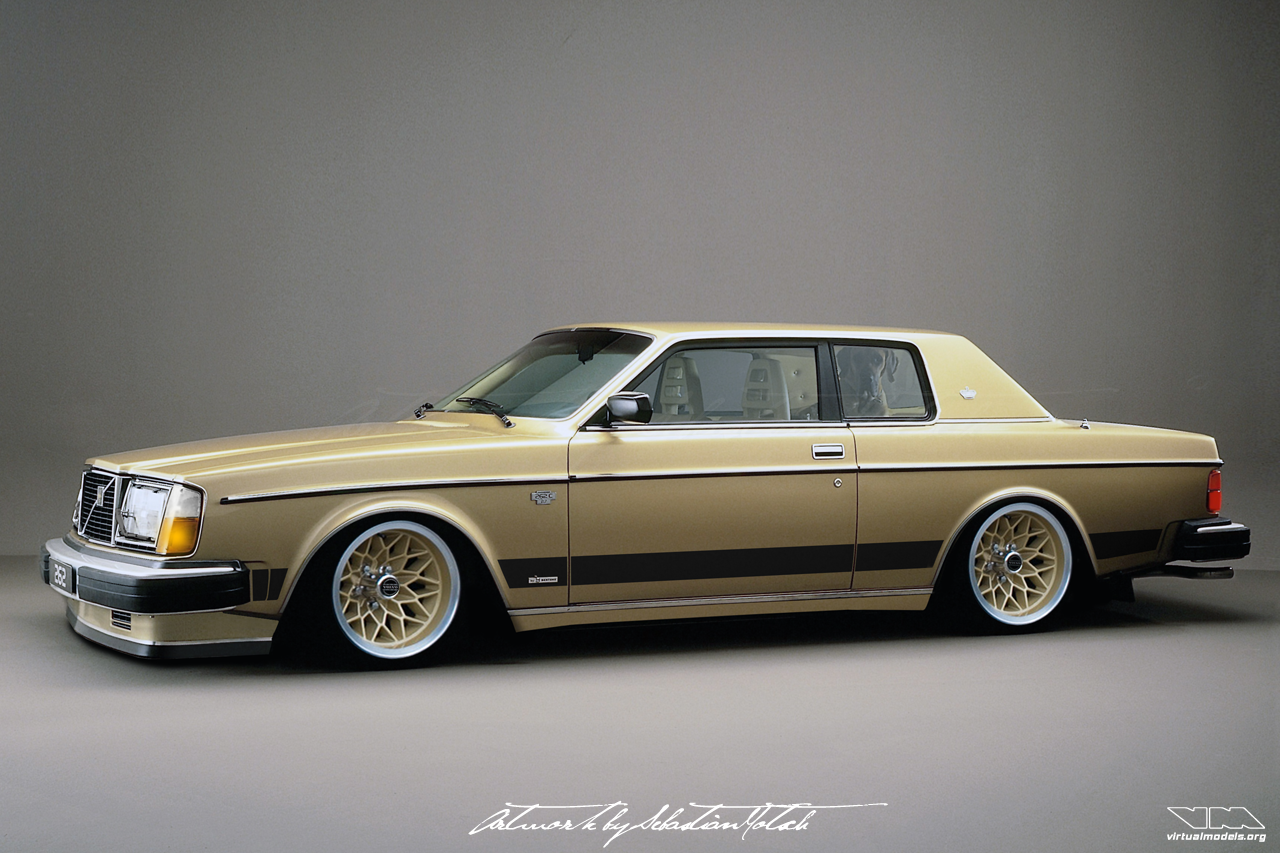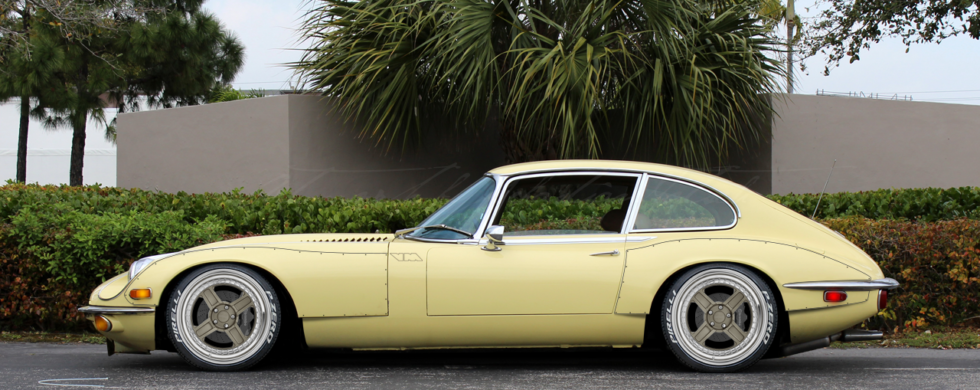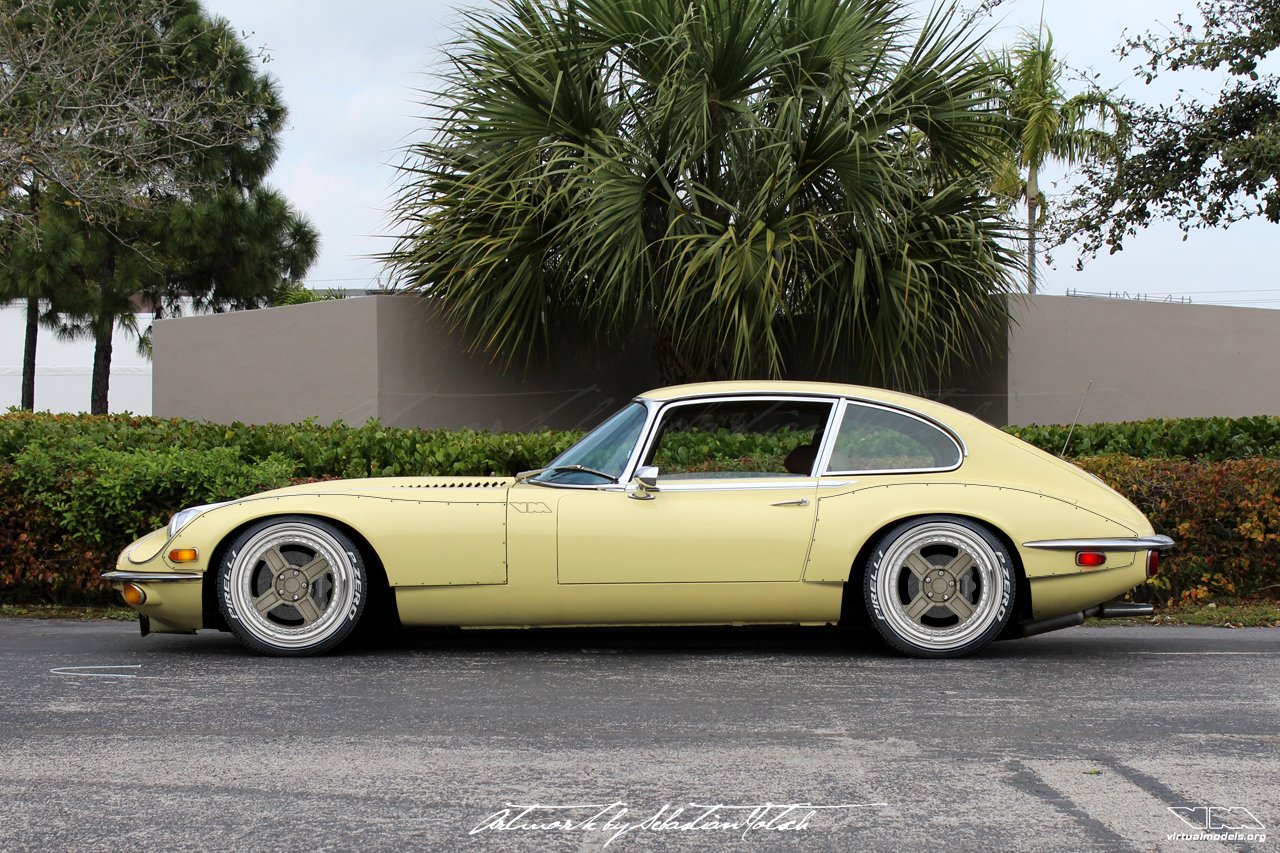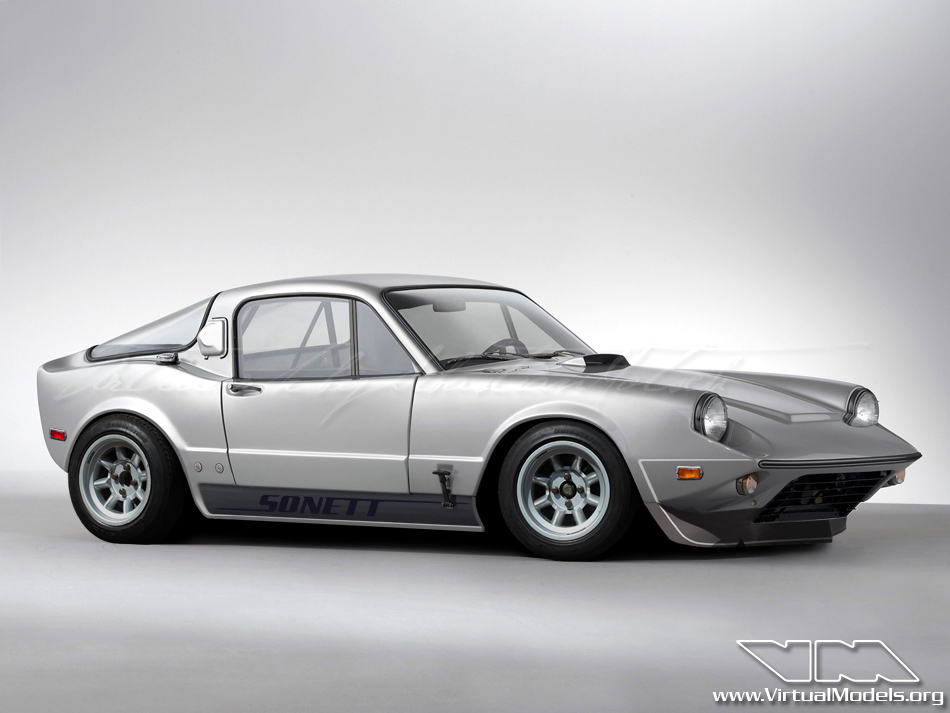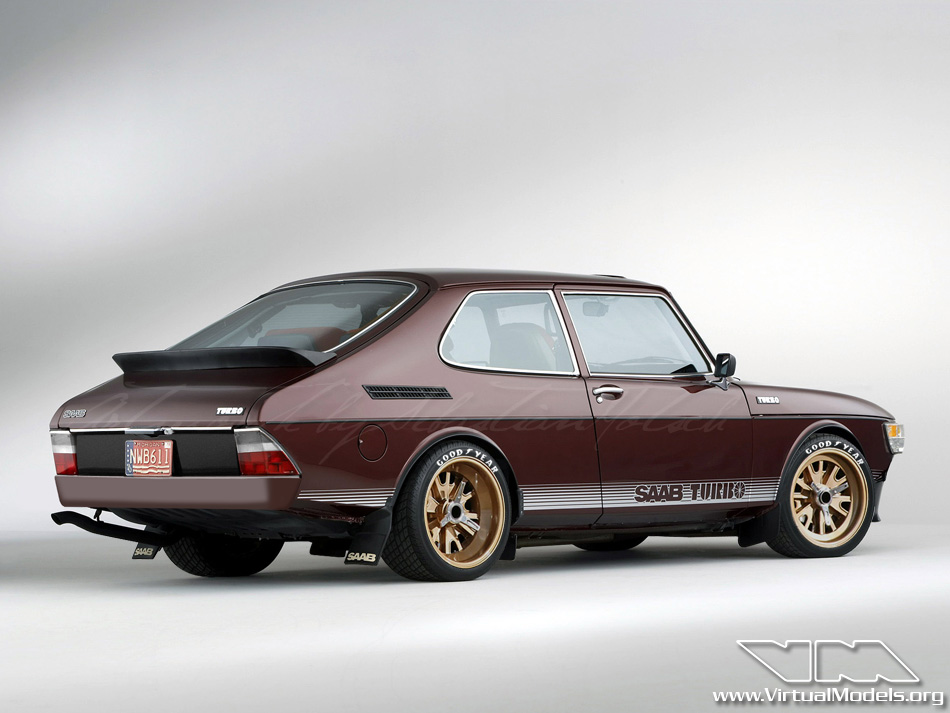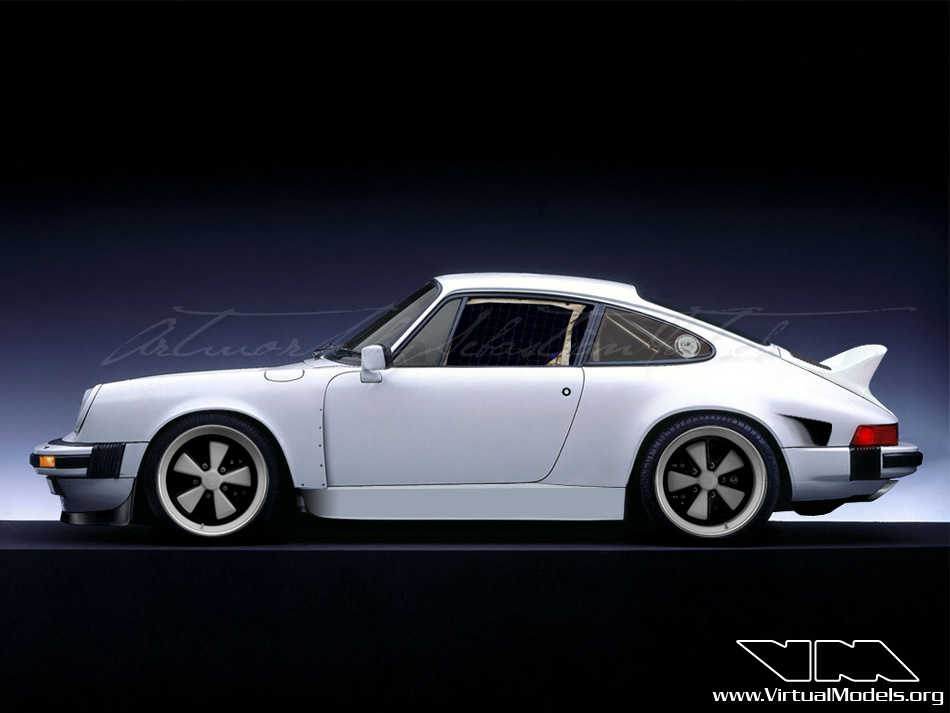27
 Bentley S1 Continental by Mulliner
Bentley S1 Continental by Mulliner
Class and distinguished elegance. This is what most people associate with the Mulliner-bodied Bentley S1 Continental.
Read More»19
 Ferrari 330 GT 2+2 Interim
Ferrari 330 GT 2+2 Interim
The Ferrari 330 GT 2+2 Interim is a super rare car and nobody in his right mind would modify this Pininfarina styled beauty. Mind you – I wouldn’t do this to a real vehicle either, but pixels never complain.
Read More»08
 Lancia Flaminia Speciale 3C Outlaw
Lancia Flaminia Speciale 3C Outlaw
At first glance, you might be tempted to think that there hasn’t been done a lot of work to this Lancia Flaminia 3C. Compare it to the original picture and try to spot the subtle changes on my version of this stunningly beautiful classic Italian car.
Read More»15
Most articles ever written about the NSU Ro 80 focused on the technical side, mainly the futuristic rotary engine designed by Felix Wankel. The design pinned by Claus Luthe was also praised for being ahead of the game, too – back in the time when the car was new. When I was a young boy, frequently riding shotgun in our neighbors’ lime green metallic Ro 80 in the 1980’s, it was just an old and somewhat anachronistic car. Always maintained by the (ex-) NSU dealership, the car was in great shape and absolutely spotless, but in my eyes it lacked something I could never really pinpoint back then. Now, three decades later, I know what it was: presence – or rather the lack thereof. The upright greenhouse with the slim pillars and chrome trim, the narrow track and the huge ground clearance made the still modern looking shape of the body feel aged.
In this photoshop chop, I adressed the above points and as a result the car has a lot more presence. Most obviously the ride height has been altered and the track widened. Apart from that I fixed the greenhouse by performing a top chop and modifying the rake of all pillars. To tie in the design of the pre-facelift taillights with the widened track, they have been modified as well instead of opting for the ugly facelift parts.
02
For this picture I challenged myself to a limit of ten modifications maximum. So, let’s see how it went. I started with a plain silver Porsche 911 Turbo (930), which I wanted to stand out but still be somewhat subtle at the same time. Not too easy to achieve, but according to friends who already commented on it, I pretty much nailed it. Here is a list of the changes I made with photoshop:
- Substantial lowering
- Zender Turbo II wheels
- idlers tire stencils
- Front lip modified with a larger splitter
- USDM sidemarkers front
- USDM taillights
- 993 Sideskirt
- 993 rearview mirrors
- Roof spoiler
- Stickers
Not even a dozen things modified and voilà – a 911 Turbo 930 that turns heads everywhere. Next step in the process of modification would be rocking up at bisimoto.com to have one of his famous twin-turbo engines installed. I’d love to have one similar to the engine I used for my Abarth 750 GT Bialbero chop.
02
While researching pictures for an upcoming FIAT 500 photoshop chop, I stumbled upon a picture of a Gutbrod Superior 600. As usual, an idea sparked and immediately I had the finished project already in my head. So I went to work and what you see here is not quite what I had imagined, but the result of a hilarious late night brainstorming session with a good friend. The Gutbrod body was altered slightly by chopping the top, louvering the hood, converting the doors to being hinged as suicide doors and relocating the wheel wells. The front axle has been moved further towards the front to get rid of the long front overhang and improve the overall proportions. Lowering was mandatory and after some trial and error with other wheels, I decided to go for Wolfrace slot mags, but kept the original hubcaps for that period correct feel. A joke referring to the German band Fettes Brot led to the sticker you see on the fender: Fettes Brod, which now also is the nickname of this hot rod project.
07
Inspired by lead sleds and other vintage customs, I decided to apply a tried and tested recipe to a vehicle nobody ever customized: the 1954 Panhard Dyna Z. A top chop is a classic modification to alter the roofline and overall appearance of a car. It also reduces drag and therefore makes the car faster. Aerodynamic enhancements are especially important if adding more horsepower isn’t really an option. Mind you, this is a rather small vehicle and fitting an engine larger than the original 851cc engine would be a massive challenge. Not too many of the ~ 140.000 built are left and I doubt that many enthusiasts would enjoy seeing one of the few leftover Z cars “butchered” just for aesthetic purposes. However, nobody can object to modifying a couple of pixels. If you don’t like it, you might enjoy looking at the original picture instead.
01
Happy New Year! The first photoshop chop in 2018 is an old project from years ago that I finally got around to finish now. I found the original picture of the SAAB 96 and immediately thought this vehicle #needsmorelow. Lowering it and enlarging the wheels made it look better, but the little something that makes it special was still missing. In order to keep it period-correct, I used the natural lines and added some graphics. These days you would probably utilize vinyl stickers, but back then it would have been painted. All in all a fun little project to prove that every vehicle has potential to look better.
22
This photoshop chop took way longer to finish than all the other pictures I created this year. It all started with looking at a Peugeot 504 brochure from the 1970’s in January. Having always loved the Pininfarina-penned styling of the coupé and convertible, I wondered why there are no tastefully modified cars out there. These vehicles are not even too expensive to buy, despite having a history of motorsport ventures in rallye and racing. As always, the “what if (I had the money)” question followed immediately and all kinds of crazy modification ideas popped up in my mind. However, modifying this elegant coupé without messing up the lines completely posed a challenge. In the end I went with a retro-inspired theme the Japanese call works style. Imagine an engine with substantially more power, modern suspension and brakes. This necessitates larger wheels and a set of overfenders to cover them. I tried to keep them subtle and close to the original design of the fenders. Finding a period-correct design for the wheels also was a challenge. Campagnolos work well with the larger diameter and the conversion to the rather large Peugeot PCD. A good friend of mine suggested to add a ventilation flap on the roof, similar to the classic Jaguar E-Type race cars, and I happily adopted this brilliant idea. The hash marks on the fenders are Peugeot Talbot Sport colors from the early 1980’s, keeping with the idea that a conversion like this might have been built when this was just an affordable used car.
Fine art prints will be available early in 2018. Make sure to pre-order soon, as this will be a limited edition of only 73 numbered and signed pieces. The prints are without watermarks.
Click here to see the original picture.
22
Imagine living in the 1970’s. It was a decade with plenty of grassroots motorsport events, e.g. hill climbs. Tuning shops popped up in sheds and small garages everywhere and catered to the individual needs. If you drove an Opel Kadett C, a Ford Escort Mk1 or even a VW Beetle you had plenty of choice when it came to car modification. But where would owners of the innovative, rotary-powered NSU R0 80 go to ask for tuning parts? Apart from the factory-option Fuchs wheels, there was a very limited selection. Maybe a few chrome-plated dress-up parts or a set of mudflaps. Fast forward 40 years and the magic of Adobe Photoshop easily makes it possible to modify the mighty NSU Ro 80 during a 45 minute lunch break.
I always thought the lines of the classic NSU have at least a little bit of potential and to prove the point that the design of every vehicle can be improved, I dug into it. As usual I started with a set of larger diameter wheels and lowered the car. To get the stance right and to avoid a rather stupid looking rake, I relocated and reshaped the rear fender. Surprisingly it makes the lines of the body look more elegant. To accentuate this, I also shaved the rear door handle and changed the side skirt from black to body color. All these modifications would have been possible when the car was in production, but the low profile tires are a more contemporary touch. Let’s call it artistic freedom, shall we?
13
“Engineers like to solve problems. If there are no problems handily available, they will create their own problems.” Scott Adams
See the original image here for comparison.
30
“A door is what a dog is perpetually on the wrong side of.” Ogden Nash
It really makes me wonder what the photographer of the original picture had in mind, when he placed a rather large dog in the rear seat of the Volvo 262C? Is it possible that he wanted to illustrate that dogs are good companions and like to travel in Volvos? Good idea, but judging by the dogs’ rather sad face he might have actually prefered to ride in a 265 station wagon.
The original picture was on my hard drive for more than a decade. The first try on modifying this vehicle is just as old – and was horrible. So I saved it and forgot about it. A chance encounter with a 262C on the Autobahn last week reminded me of the old file and I openened it in Photoshop again… only to delete it minutes later. After a quick search for the same picture with better size and resolution, I started to modify it again. This time around I changed a vital part that I didn’t think about ten years ago: the rear fender. The Volvo 200-series cars have a rear fender cutout that prohibits lowering the car without looking odd, because the upper part of the wheel disappears behind the sheetmetal. Once that was fixed I selected a set of wheels with period correct design, lowered the car, modified the front spoiler and added the black stripes.
It took ten years to finally finish this one, but now I’m happy with the result. If you have any suggestions what could be done differently or better, please let me know in the comments. Thank you in advance.
21
The Jaguar E-Type is one of the automotive icons of the 20th century, along with the Citroën DS. Most people, including most of my friends from Passau Classics, think that these iconic cars should not be messed with and any modification deviating from 100% originality is deemed evil. If you are a regular reader you already know that I created a DS Shooting Break and hence you will not be surprised about the latest creation. Unlike the DS, which is completely my idea and design, the Jaguar E-Type Mk3 V12 you see below is inspired by the current trend of bolting fender flares to cars.
As per my opinion that parts should not only be cosmetic but also serve a purpose, I choose the Jaguar as a base for this conversion. The original body of the E-Type is not designed to accomodate wide wheels due to the shape of the fenders. An update to state-of-the art coilovers along with a healthy drop in ride height and a set of larger and wider wheels necessitates the above mentioned bolt-on fenders. Oh… and of course cutting off substantial parts of the original bodywork in the process. The purists out there might not like it a tiny bit or even hate it, but like-minded enthusiasts might love it even more. 😉
08
The SAAB Sonett was a nifty little sportscar. Originally fitted with a 1500cc Ford Taunus V4 engine it had enough power to be a fun runabout. Still… not enough to have serious fun with the little bugger. I wondered what a club racing version of the Mk2 Sonett could have looked like. Lowered, of course, with wider wheels and meatier tires and a few aerodynamic tweaks. Because there isn’t much space in the engine compartment, a V6 engine wasn’t an option. Hence I opted for a turbocharger. Now, which version would you prefer? Stock or Club Racer?
03
SAAB went out of business in 2011, which made me sad because I always liked the odd and sometimes even weird Swedish cars. Especially the vehicles developed before GM bought SAAB had something that made them unique and therefore special.
SAAB customers of yore have been very loyal and enthusiastic about their brand. Instead of building small amounts of special cars for customers willing to pay more for a SAAB than for any other car, GM watered down the design in order to make the cars appeal to more mainstream customers. The idea of selling more vehicles that way didn’t work out too well, did it? Rightly so, because most people thought the vehicles were not special enough for the price asked. If customers want to drive a car that makes them stand out of the crowd, it doesn’t really make sense to design cars that appeal to a broader audience. The decline of the SAAB brand was slow and painful for enthusiasts. Late in 2011 it was finally over. SAAB – rest in peace.
To honor the “real” SAAB cars of yesteryear, I want to create a series of modified SAAB vehicles in 2012. The first one is the 99 Turbo pictured here. With the base vehicle already looking a little odd, the period correct race car wheels fit perfectly with the mud guards, IMO. The 99 has also been lowered and a couple of parts on the body have been altered. Hey… it could have been like that back then 😉
08
The iconic Porsche 911 came in various configurations. The picture of the 3.2 with the narrow body inspired me to create a phantom racecar. No livery yet… but I’ll figure something out sooner or later, hehe. In case you’re wondering where the wheels came from: they are from the Singer 911.

